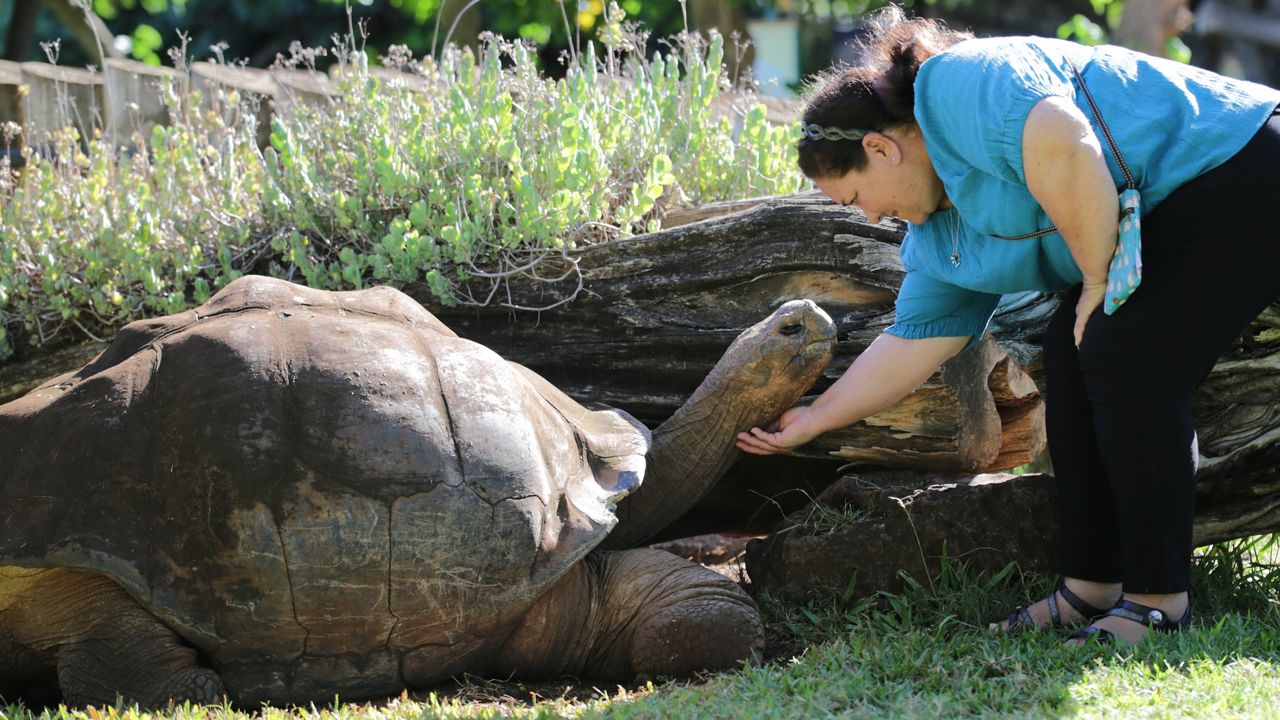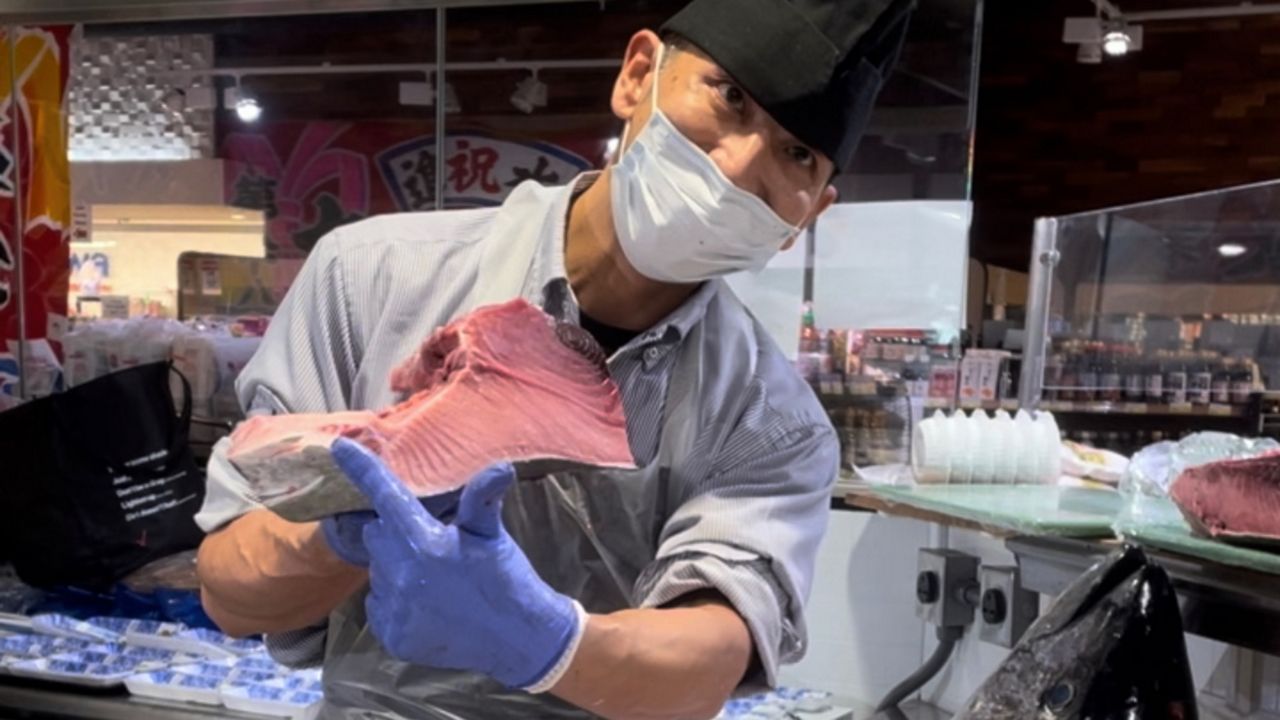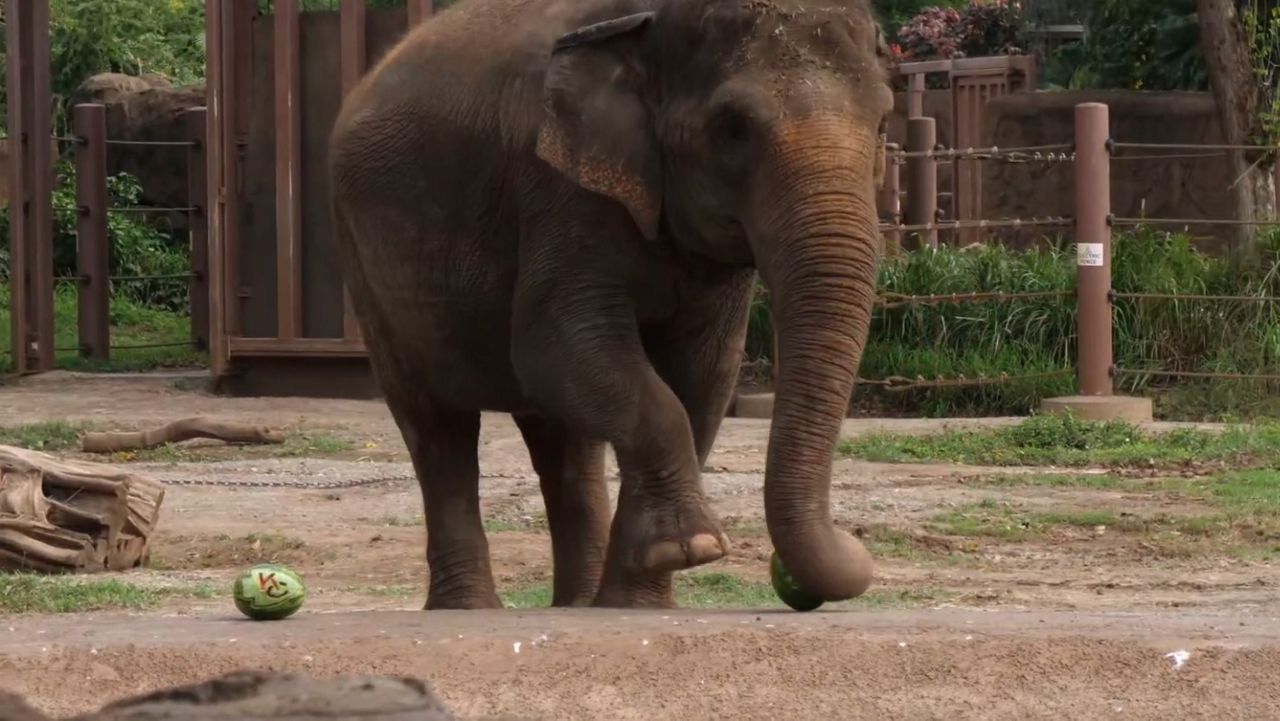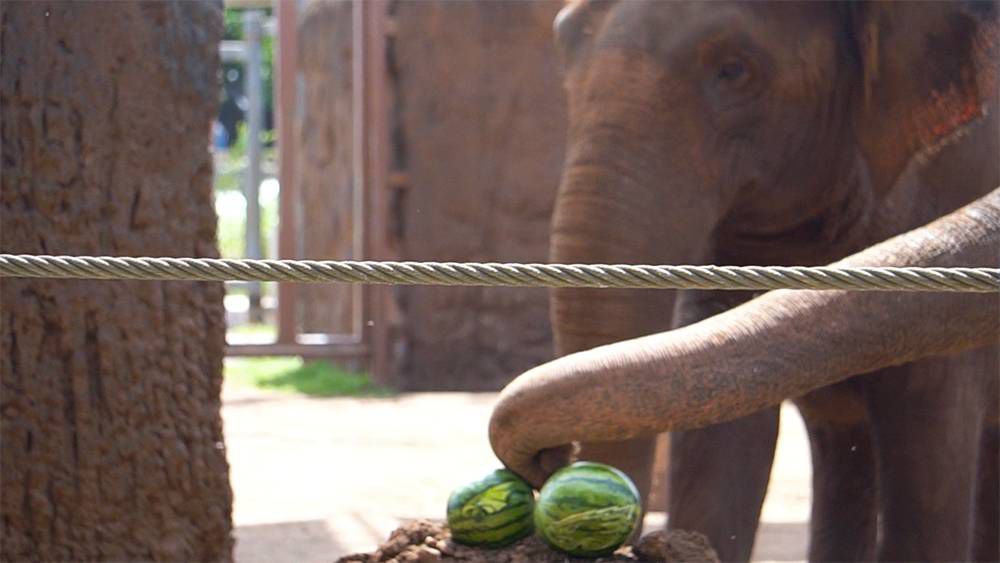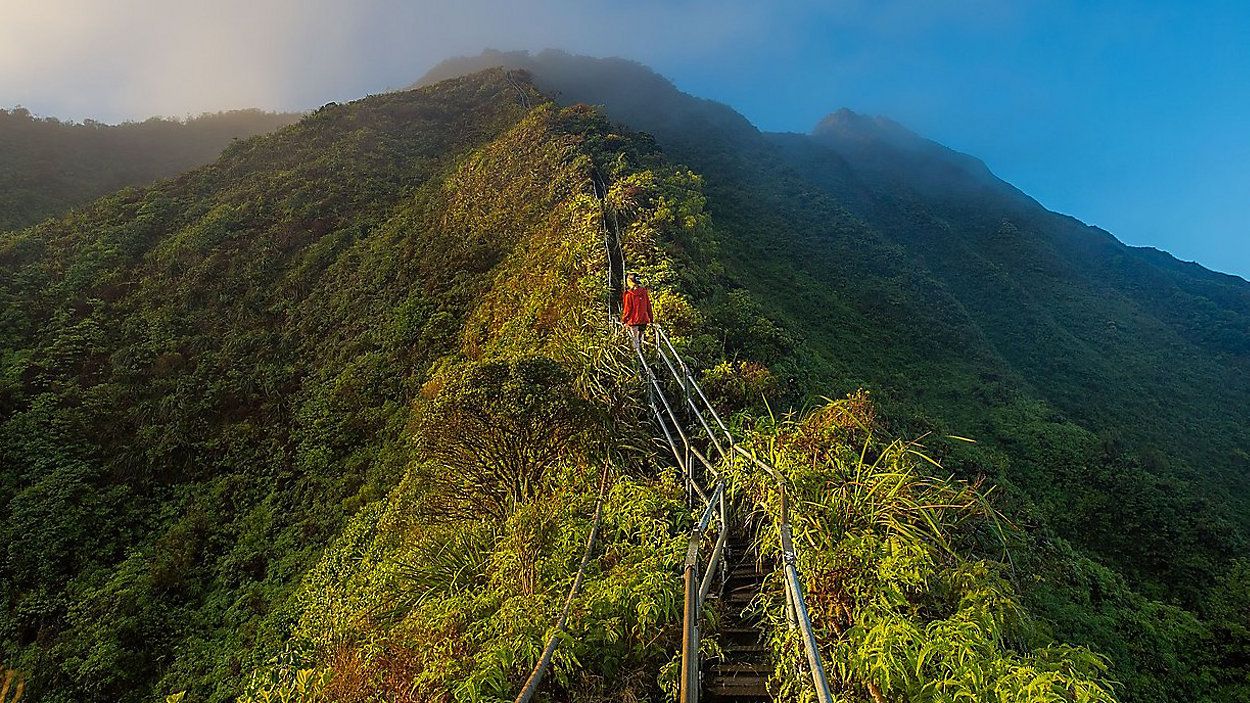HONOLULU — The Honolulu Zoo Director Linda Santos started her career at the zoo in 1986 as a commissary worker. In this role, she made meals for all the different zoo animals.
She said it was a good place to start because she learned about animal nutrition. Shortly after that, she shifted roles and started working with birds.
“It’s a unique animal choice. It’s not something easy to work with,” said Santos. “I think there’s a lot of challenges understanding bird behavior … trying to seal habitats, knowing what species will work with each other, so you can do an exhibit.”
Despite the challenges, she said it was fun. In the beginning, she worked with three species: Raggiana bird-of-paradise, magnificent bird-of-paradise and superb bird-of-paradise.
“The adult males are just very ornamental, so it's fabulous to work with these different species,” said Santos.
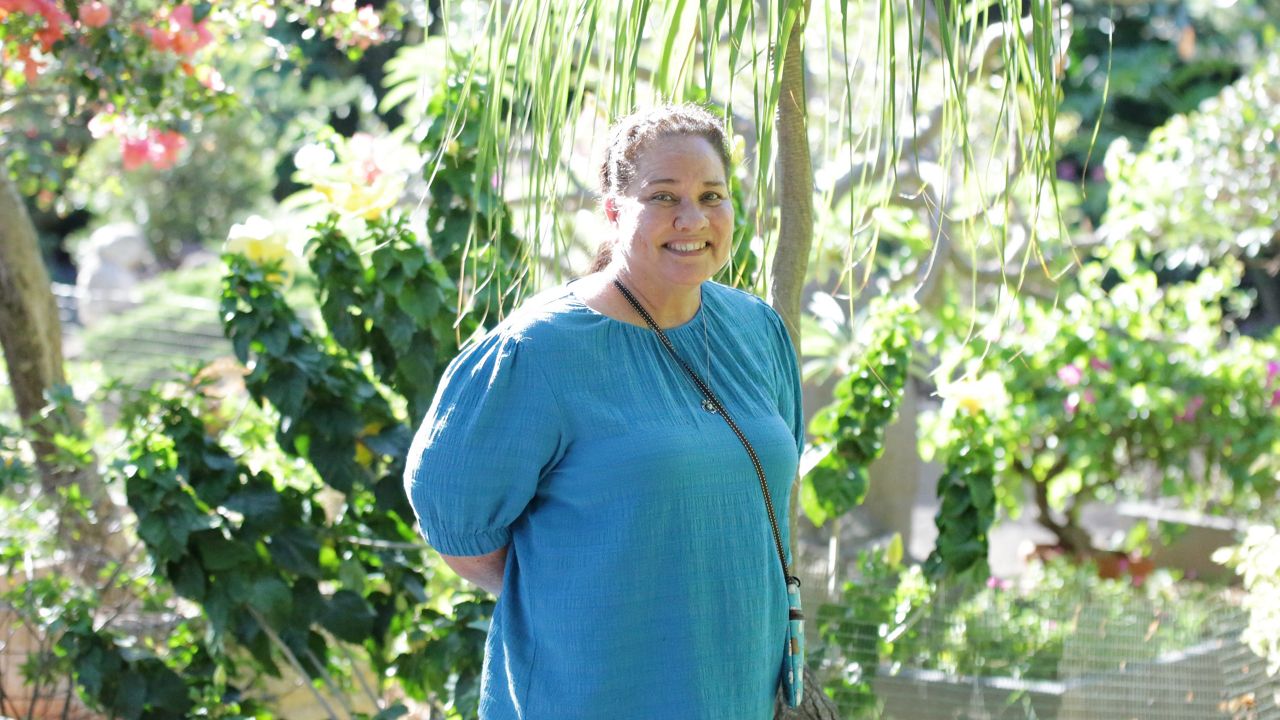
However, she is most passionate about working with native Hawaiian species.
“I was fortunate enough to do a lot of fieldwork in Hawaii with endangered species like apapane and iiwi,” said Santos referring to two native honeycreepers.
She worked on a behavior study to understand what the birds’ different songs meant. While many native honeycreepers are going extinct now, as climate change allows deadly mosquitoes to move into higher-altitude forests where the birds live, she thought that only made working with them more important.
The 61-year-old has worked in almost every position at the zoo. She was assistant director, general curator, bird curator and a zookeeper. In 2017, after more than 30 years at the Honolulu Zoo, Santos was selected to be the zoo’s first female director.
Before her appointment, the Honolulu Zoo had gone through a string of zoo directors. In March 2016, the zoo, which is run by the city’s Department Enterprise Services, lost its accreditation. One reason cited by the Association of Zoos and Aquariums for revoking accreditation was unstable leadership. Another reason was a lack of steady revenue.
Santos said when she became director, it was hard work to earn back AZA accreditation, which required her to get all the zoo employees on board.
“The staff had to understand the importance of accreditation and what it would allow us to achieve,” said Santos.
Along with the staff, she also involved different city agencies, the Honolulu Zoological Society nonprofit, and the concessionaire, which runs the Kapahulu Market.
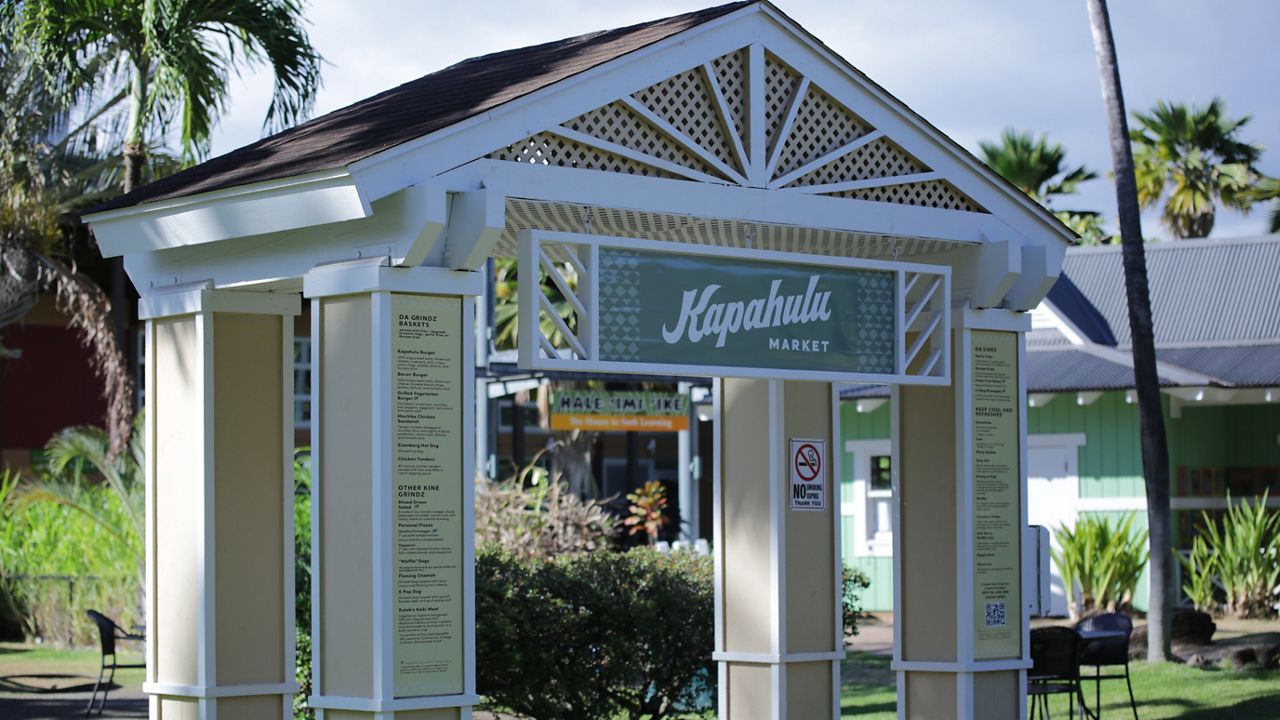
In 2020, the AZA accredited the Honolulu Zoo. Accreditation allows the zoo to exchange breeding animals with other zoos. Last year, as part of the Association of Zoos and Aquariums Species Survival Plan, a pair of critically endangered black rhinoceros were brought to Honolulu from San Diego. In May, a baby rhino was born at the Honolulu Zoo – a first for the zoo.
Santos said zoo breeding programs are important to sustain animal populations. “It’s kind of like the ark,” said Santos, referring to Noah’s Ark. If an animal species goes extinct in the wild, Santos said, then the zoo animals would remain and could hopefully be reintroduced into the wild. She said it was especially important to preserve animal species so the next generation would be able to see them.
The zoo, in partnership with the Department of Land and Natural Resources, breeds native species like the Kamehameha butterfly and the critically endangered Amastra cylindrica, a brown land snail. The Amastra cylindrica was considered extinct in the wild – until 2017 when the zoo released 157 of the snails raised at the Ecotherm Complex into the Waianae Mountains. Santos said the Honolulu Zoo is hoping to expand its snail program to help other critically endangered snails.
“Zoos do so much conservation work. They preserve land. They do field work. They support conservation,” said Santos.
In 2019, before the COVID-19 pandemic started, the Honolulu Zoo had around 600,000 visitors. Santos said those numbers haven’t quite recovered yet, estimating the zoo hosted around 400,000 visitors in 2023. She said Japanese tourists love the Honolulu Zoo, but the number of visitors coming to Hawaii from Japan is only about half of what it was in 2019. Still, Santos thinks the zoo’s visitor numbers will continue to go up as pandemic sentiment wanes.
This summer, the city approved a $2 price increase for admission to the Honolulu Zoo. Santos estimates this will increase the zoo’s revenue by about a half million dollars.
“We're trying to generate more revenue so we can do more fun things for the public to see,” said Santos.
At the entrance of the Honolulu Zoo, Santos hopes they will be able to build a Hawaiian wetlands exhibit. She also hopes the additional revenue will allow the zoo to add more exhibits that showcase native species, continue its breeding program and update older exhibits.
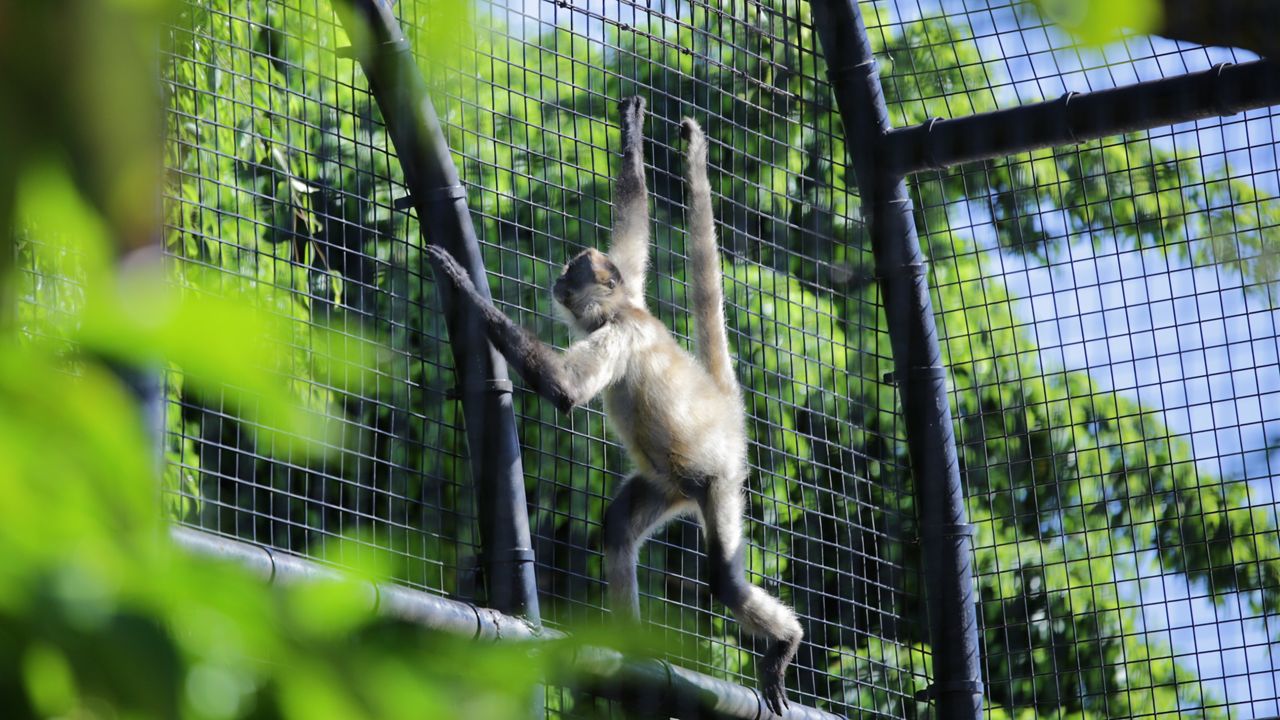
In 2020, the Honolulu Zoo built a bigger and taller exhibit for the spider monkeys. The new exhibit has grass – instead of a cement floor – for the spider monkeys to enjoy.
“When we first let them out (into the new exhibit), it brought me to tears because they laid down on the grass. They’ve never had grass,” said Santos.
Santos hopes people who visit the Honolulu Zoo enjoy their experience with the animals “because a lot of these animals are disappearing.” And that a visit to the zoo inspires people to think about how they can help save endangered species and protect the environment.
Michelle Broder Van Dyke covers the Hawaiian Islands for Spectrum News Hawaii. Email her at michelle.brodervandyke@charter.com.




